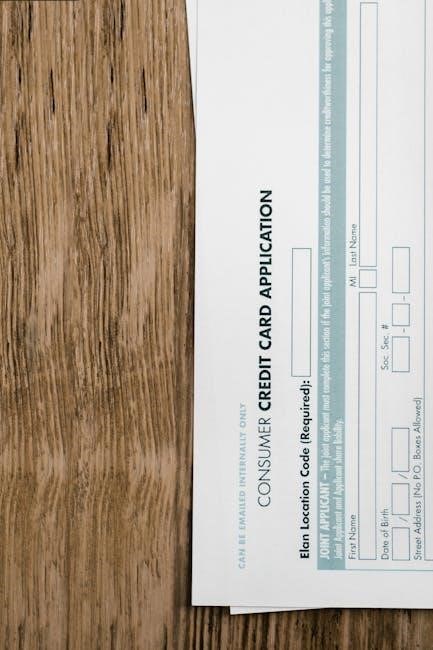sixth form application deadline 2024
- Published
- in United Kingdom
Key Deadlines for Sixth Form Applications 2024
Key deadlines for sixth form applications in 2024 vary by institution‚ with many closing in late November 2023‚ while others extend into January 2024. Late applications may still be accepted but options could be limited.
1.1. General Application Deadline Overview
Applications for sixth form in 2024 typically close between late October and early December 2023‚ with some institutions setting earlier deadlines for competitive programs. Late applications may still be accepted after the primary deadline‚ though course availability could be restricted. It’s essential to check the specific deadlines on the websites of schools or colleges you’re applying to‚ as these can vary significantly. Additionally‚ some institutions may require interviews or assessments by specific dates. Missing these deadlines could impact your chances of securing a place. Applying early is recommended to avoid complications and ensure all materials are submitted on time.
1.2. Specific Deadlines for Popular Sixth Forms
Popular sixth forms often have strict deadlines‚ with many closing applications by late November 2023. For example‚ King’s Sixth Form typically closes its applications by the end of November‚ while other prominent institutions may extend deadlines into early December. Some colleges and schools may also have earlier deadlines for specific courses or programs. It’s crucial to check the websites of the sixth forms you’re applying to‚ as deadlines can vary significantly between institutions. Additionally‚ some schools may require interviews or assessments by specific dates‚ so early preparation is essential; Missing these deadlines could limit your options‚ so applying well in advance is highly recommended.
1.3. Late Application Policies and Procedures
Late applications for sixth form 2024 may still be accepted‚ but options could be limited depending on course availability. Some institutions allow late submissions after the main deadline‚ though priority is often given to timely applicants. If applying late‚ contact the sixth form directly to confirm their policy. Late applicants may need to attend interviews or assessments if required by the institution. Meeting entry requirements remains essential for consideration. Deadlines vary‚ so checking specific school or college policies is crucial. Late applications should be submitted as soon as possible to avoid missing opportunities‚ but be prepared for reduced course choices.

How to Apply for Sixth Form in 2024
Applications for sixth form 2024 are typically submitted online via the institution’s website. Create an account‚ complete the form‚ and upload required documents like GCSE results and references. Submit early to avoid delays and confirm receipt with the institution. Ensure all details are accurate‚ as errors may cause processing issues. Follow up if necessary to confirm your application has been received. Deadlines vary‚ so check the specific school or college’s website for guidance. Most applications open in late 2023‚ with deadlines in early 2024. Some institutions may require additional steps like interviews or assessments.
2.1. Step-by-Step Guide to Submitting Applications
To submit a sixth form application for 2024‚ start by researching institutions and their specific requirements. Visit the school or college website and locate the application portal. Create an online account if required‚ then log in to access the application form. Fill in personal details‚ academic history‚ and subject choices. Upload necessary documents‚ such as GCSE results‚ references‚ and a personal statement. Review the form for accuracy‚ then submit before the deadline. Some institutions may require additional steps like interviews or assessments. After submission‚ confirm receipt via email and track the status through the portal. Ensure all communications are retained for reference.
2.2. Required Documents for Sixth Form Applications
When applying for sixth form in 2024‚ you will typically need to provide specific documents. These include your GCSE results‚ a personal statement‚ and a reference from your current school. Some institutions may also require proof of residency or identification. Ensure all documents are uploaded correctly to the online application portal. Deadlines for submitting these materials vary‚ so check the specific requirements of each sixth form. Missing or incomplete documents may delay your application‚ so double-check everything before submission. Keep copies of all documents for your records‚ as they may be requested later in the process.
2.3. Tips for Completing the Application Form
When completing your sixth form application form‚ start early to avoid last-minute stress. Tailor your personal statement to each institution‚ highlighting relevant skills and interests. Ensure all information is accurate and up-to-date. Proofread thoroughly to avoid errors. Attach required documents‚ such as GCSE results and references‚ before submitting. If applying to multiple institutions‚ create a checklist to track deadlines and requirements. Seek advice from teachers or mentors to strengthen your application. Finally‚ review the submission guidelines carefully to ensure compliance with the institution’s specific processes. A well-prepared application increases your chances of securing a place at your preferred sixth form.
Entry Requirements for Sixth Form 2024
Entry requirements for sixth form typically include five GCSEs at grades 9-4‚ with higher grades often required for subjects like sciences and maths. Some institutions may also require interviews or assessments.
3.1. Academic Requirements (GCSE Grades)
Academic requirements for sixth form typically include achieving at least five GCSEs at grades 9-4‚ with specific subjects often requiring higher grades. For sciences‚ maths‚ and competitive subjects‚ grades 7-9 are frequently expected. Some institutions may also consider overall academic performance and relevance of GCSE subjects to chosen A-level courses. It’s essential to check individual sixth form entry criteria‚ as requirements can vary significantly between schools and colleges. Meeting these benchmarks ensures eligibility for advanced studies and supports success in chosen subjects at sixth form level. Strong GCSE results are foundational for progressing to A-levels or equivalent qualifications.
3.2. Subject-Specific Entry Criteria
Subject-specific entry criteria vary widely‚ with many sixth forms requiring higher GCSE grades for competitive or STEM subjects. For example‚ sciences‚ maths‚ and modern languages often demand grades 7-9‚ while arts and humanities may accept grades 6-8. Some subjects‚ like maths and physics‚ may also require additional assessments or interviews to assess aptitude. Certain sixth forms may specify that relevant GCSE subjects must be taken and passed at a high standard. These criteria ensure students are well-prepared for the demands of advanced studies. It’s crucial to review the specific entry requirements for each subject on the institution’s website to ensure eligibility.
3.3. Additional Requirements (Interviews‚ Assessments)
Beyond academic qualifications‚ many sixth forms require interviews or assessments to evaluate a student’s suitability. These are particularly common for competitive subjects or programs. Interviews often focus on a student’s passion for the subject and their future goals. Some institutions may also conduct aptitude tests or request portfolios for arts-related subjects. Assessments vary by school but aim to gauge a student’s readiness for advanced study. It’s essential to check the specific requirements for each sixth form‚ as failure to meet these criteria could affect admission chances‚ even with strong academic performance.

Choosing the Right Sixth Form
Consider factors like academic offerings‚ teaching style‚ extracurricular opportunities‚ and support services to ensure the sixth form aligns with your academic and career goals.
4.1. Factors to Consider When Selecting a Sixth Form
When choosing a sixth form‚ consider academic offerings‚ teaching styles‚ and extracurricular activities. Assess the support services‚ such as career guidance and mental health resources. Location and transport links are also important. Additionally‚ review the entry requirements and success rates of the institution. Attend open days to gauge the atmosphere and speak with current students. Consider whether the sixth form is part of a school or a standalone college‚ as this can impact the learning environment. Ensure the curriculum aligns with your future goals‚ whether academic or vocational. Lastly‚ evaluate the availability of resources like libraries and labs to support your studies.
4.2. Differences Between School Sixth Forms and Colleges
School sixth forms and colleges differ in environment and structure. Sixth forms within schools often provide a more familiar‚ smaller community‚ with teachers who may have taught students at GCSE level. Colleges‚ however‚ typically offer a broader range of courses and a more independent learning environment. Class sizes in colleges may be larger‚ and there is often greater diversity among students. Extracurricular opportunities and facilities can vary significantly between the two. Additionally‚ entry requirements and course availability differ‚ with colleges sometimes offering vocational options alongside A-levels. Consider which setting aligns best with your learning style and career goals when making your choice.
4.3. How to Research and Compare Sixth Forms
Researching and comparing sixth forms involves visiting their official websites to review course offerings‚ entry requirements‚ and facilities. Attend open evenings or virtual tours to gain firsthand insights. Consider factors such as location‚ class sizes‚ and extracurricular opportunities. Consider reaching out to current students or alumni for their experiences. Additionally‚ compare teaching styles‚ support services‚ and academic track records. Use online forums and reviews to gather broader perspectives. Finally‚ create a checklist of priorities to evaluate which sixth forms align best with your goals and preferences‚ ensuring an informed decision tailored to your needs.

Preparing for Sixth Form Applications
Start by researching entry requirements and deadlines‚ ensuring you understand what is needed for your chosen courses. Organize necessary documents like GCSE results and references early.
5.1. Academic Preparation for Sixth Form
Academic preparation is crucial for a smooth transition to sixth form. Focus on achieving strong GCSE grades‚ particularly in subjects you plan to study at A-level. Many sixth forms require a minimum of 5 GCSEs at grades 9-4‚ with higher grades often needed for competitive subjects like sciences and maths. Use revision sessions and teacher guidance to strengthen weaker areas. Practicing past papers and staying organized can also build confidence. Additionally‚ research the curriculum for your chosen subjects to understand the workload and expectations. Developing good study habits early will help you excel in sixth form and beyond.
5.2. Writing a Strong Personal Statement
A strong personal statement is essential for sixth form applications‚ showcasing your strengths‚ interests‚ and suitability for your chosen subjects. Reflect on your academic achievements‚ extracurricular activities‚ and career aspirations. Highlight skills like critical thinking‚ creativity‚ and leadership. Be specific about why you are passionate about your subjects and how they align with your future goals. Avoid generic statements and ensure your writing is clear‚ concise‚ and free of errors. Use a structured approach: an engaging introduction‚ focused paragraphs‚ and a confident conclusion. Proofread thoroughly to make a lasting impression and demonstrate your commitment to your academic journey.
5.3; Preparing for Interviews and Assessments
Preparing for sixth form interviews and assessments is crucial to make a positive impression. Research the institution and review your personal statement to anticipate common questions. Practice discussing your academic strengths‚ career goals‚ and extracurricular activities. Review key subjects and topics to demonstrate your knowledge and enthusiasm. Many sixth forms require interviews to assess your suitability for specific courses. Some may also include aptitude tests or assessments‚ so ensure you are familiar with the format and content. Dress professionally‚ arrive early‚ and maintain a confident demeanor. Use this opportunity to showcase your passion for learning and your readiness for sixth form studies.

Post-Application Process and Deadlines
After submitting your application‚ track its status through the institution’s portal. Offers are typically received by spring‚ with deadlines for responses shortly after. Ensure timely follow-up.
6.1. Tracking the Status of Your Application
Once you’ve submitted your sixth form application‚ most institutions provide an online portal to track its progress. Create an account on the college or school’s website to monitor your application status. You can typically view whether your application has been received‚ is under review‚ or requires additional documents. Some schools send email updates‚ so check your inbox regularly‚ including spam folders. If you haven’t received any communication‚ contact the admissions office to confirm your application has been processed; Stay organized by keeping your login details and any reference numbers handy. Regularly checking ensures you stay informed about your application’s progress.
6.2. Deadlines for Receiving Offers
Deadlines for receiving offers for sixth form applications typically vary by institution but generally fall between late winter and early spring. Most schools aim to send offers by February or March‚ though some may respond earlier‚ especially for popular programs. Students should expect to receive offers no later than April‚ as this allows time to finalize placements before the academic year begins. If no communication is received by late spring‚ it’s advisable to contact the admissions office to confirm the status of your application. Regularly checking your email‚ including spam folders‚ is crucial to ensure you don’t miss important updates.
6.3. What to Do After Receiving an Offer
Upon receiving a sixth form offer‚ students should first carefully review the terms and conditions. Accepting the offer is typically done online through the institution’s portal by the specified deadline. Next‚ attend any induction days or orientation events to familiarize yourself with the campus and meet teachers. Additionally‚ begin preparing academically by reviewing course materials or summer work provided. Confirm your start date and ensure all administrative steps‚ like providing required documents‚ are completed. If unsure about the offer‚ seek guidance from school counselors or the sixth form admissions team to make an informed decision. This ensures a smooth transition into sixth form.
